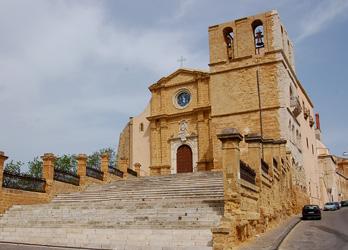
2 minute read
Blessed Rosario Livatino and the Excommunication of Mafiosi by Vatican News
from Oremus June 2021
Tackling Deep-rooted Corruption and Violence
Vatican News
The Vatican's Dicastery for Promoting Integral Human Development has announced the creation of a working group with the aim of excommunicating members of the Mafia. Formation of the group coincided with the Beatification ceremony in Agrigento, Sicily, of the Sicilian magistrate, Rosario Angelo Livatino, who was killed by the Mafia in 1990. He is the first beatified judge in the history of the Church. The initiative is a further step in the commitment on these issues of the Dicastery presided over by Cardinal Peter Turkson, who had already created an international global network against corruption, organized crime and mafias in August 2018.
In paragraph 28 of his encyclical Fratelli tutti, Pope Francis emphasizes how the ‘loneliness, fears and insecurity of so many people, who feel abandoned by the system, mean that a fertile ground for mafias is being created’. In the text, the Holy Father recalls how organised crime outfits impose themselves by presenting themselves as ‘protectors’ of the forgotten ‘while pursuing The Cathedral of San Gerlando, Agrigento their criminal interests’. The statement is a hint at an underestimated risk also underlying the socio-economic crisis generated by the pandemic and develops the most recent papal magisterium on the issue of organized crime.
The past three Popes have vehemently denounced organised crime. Pope St John Paul II made a historic appeal for the conversion of the mafiosi in the Valley of the Temples in southern Italy’s Agrigento in May 1993. Pope Benedict XVI defined the mafia as a ‘road of death’ during his visit to Palermo in 2010. Pope Francis excommunicated the mafiosi in Sibari, in 2014. On that occasion, in a homily at Mass on 21 June, he described Calabria region’s ‘Ndrangheta crime syndicate as personifying ‘worship of evil and contempt for the common good’. He said the mafiosi ‘are not in communion with God: they are excommunicated’.
The Working Group on the ‘excommunication of the mafias’ was created to give pastoral substance to those words pronounced by Pope Francis, and to ensure that the universality of the Church can respond to the worldliness of the mafias by clarifying that belonging to them is irreconcilable with the Gospel. On Italy’s Day of Remembrance for the Innocent Victims of the Mafia, the Holy Father remembered all the victims of ‘mafias’ across the world and noted that criminal organisations are taking advantage of the pandemic to enrich themselves. He recalled the life and martyrdom of Rosario Angelo Livatino, who was beatified on the island of Sicily that day, saying he was ‘a martyr of justice and faith ... in his service of the common good, as an exemplary judge who never succumbed to corruption, he sought to judge not to condemn but to redeem. His work placed him firmly under the protection of God. For this reason, he became a witness to the Gospel even unto a heroic death’. Pope Francis urged everyone, especially magistrates, to look to Bl Rosario’s example and to learn from him how to be ‘faithful defenders of the rule of law and of freedom’. Bl Rosario was an Italian judge who was killed in 1990 by hired gunmen under orders from the heads of the Sicilian organized crime groups Stidda and Cosa Nostra. His beatification took place in the Cathedral of Agrigento, and was presided over by Cardinal Marcello Semeraro, Prefect of the Congregation for the Causes of Saints.









